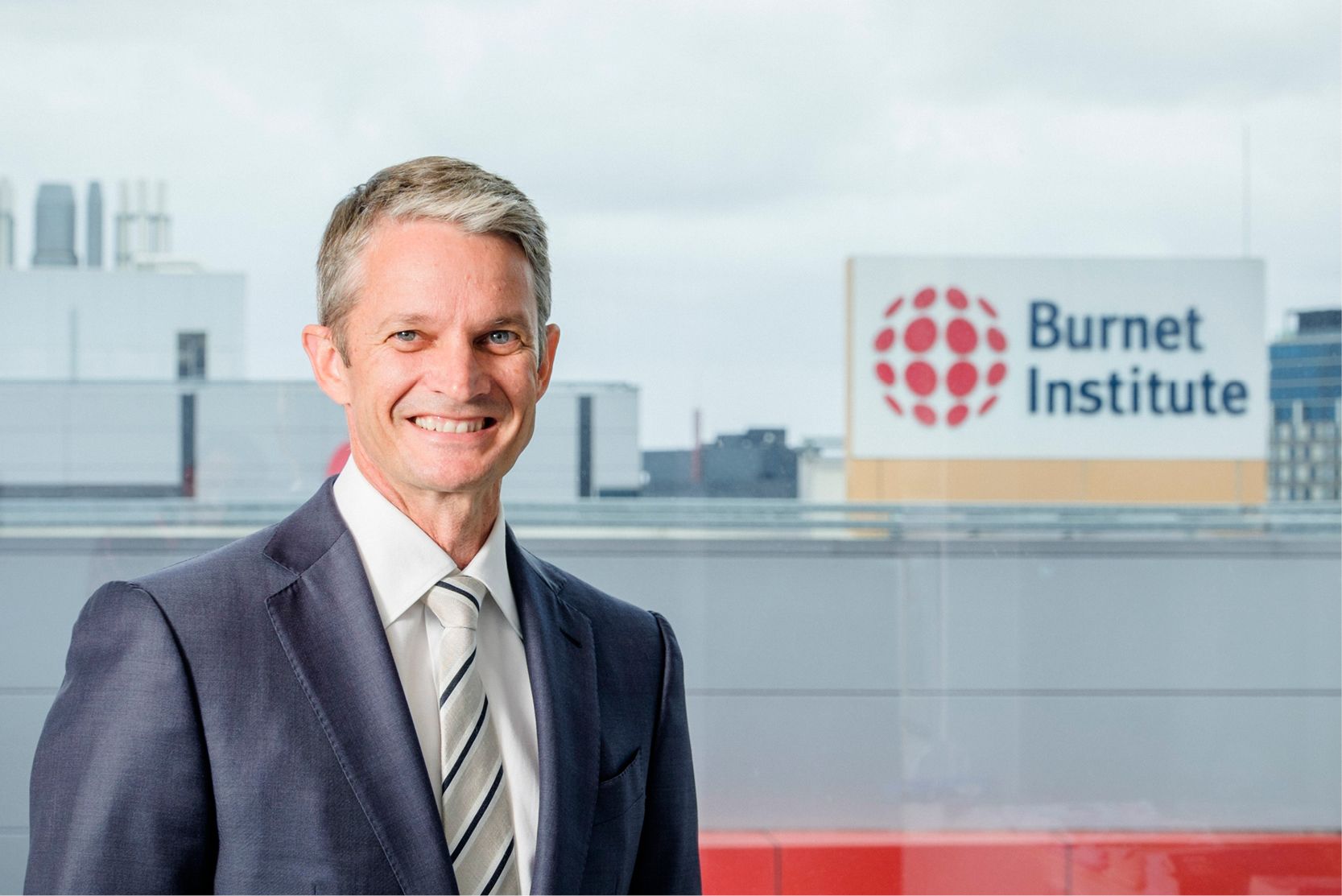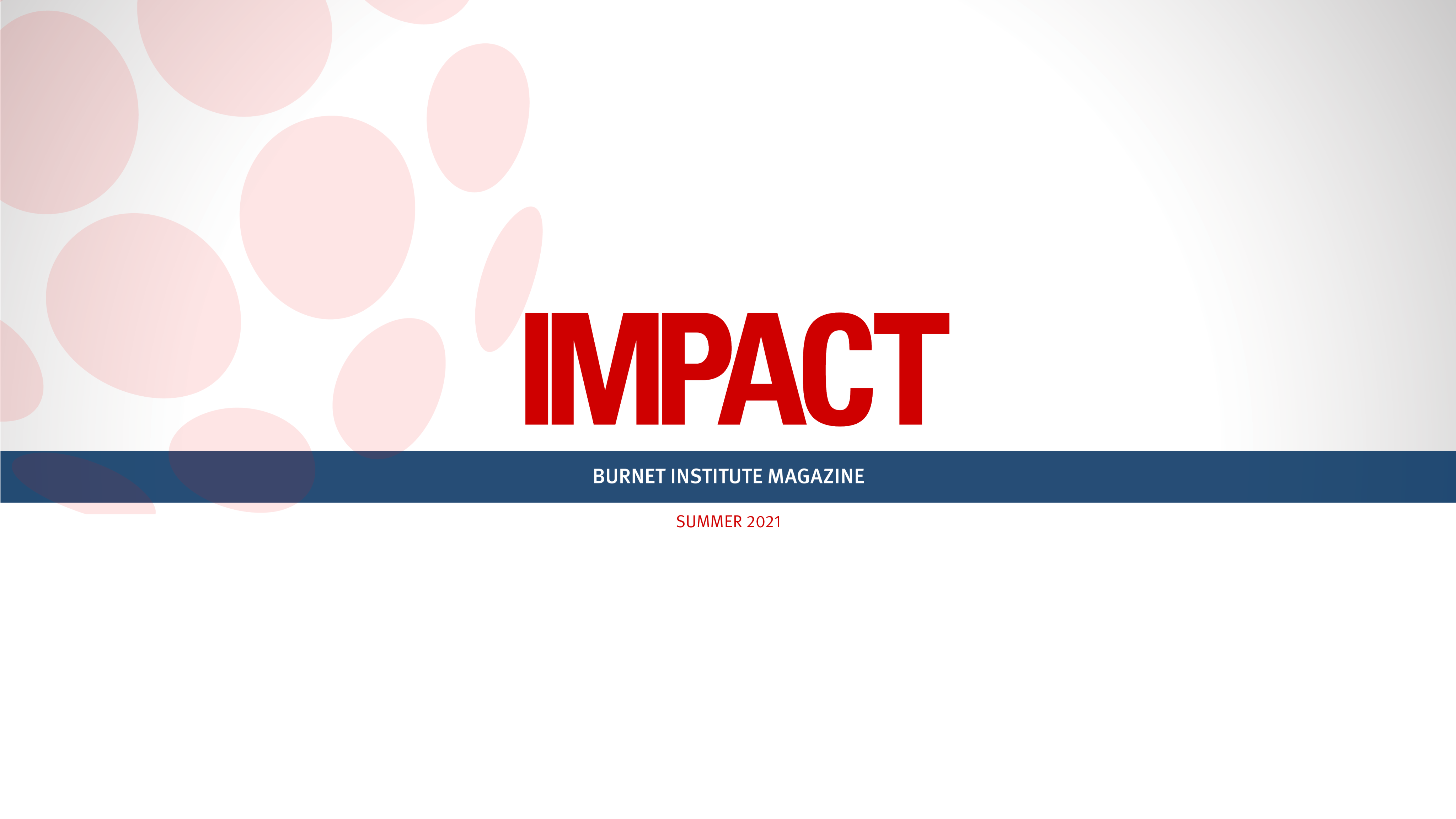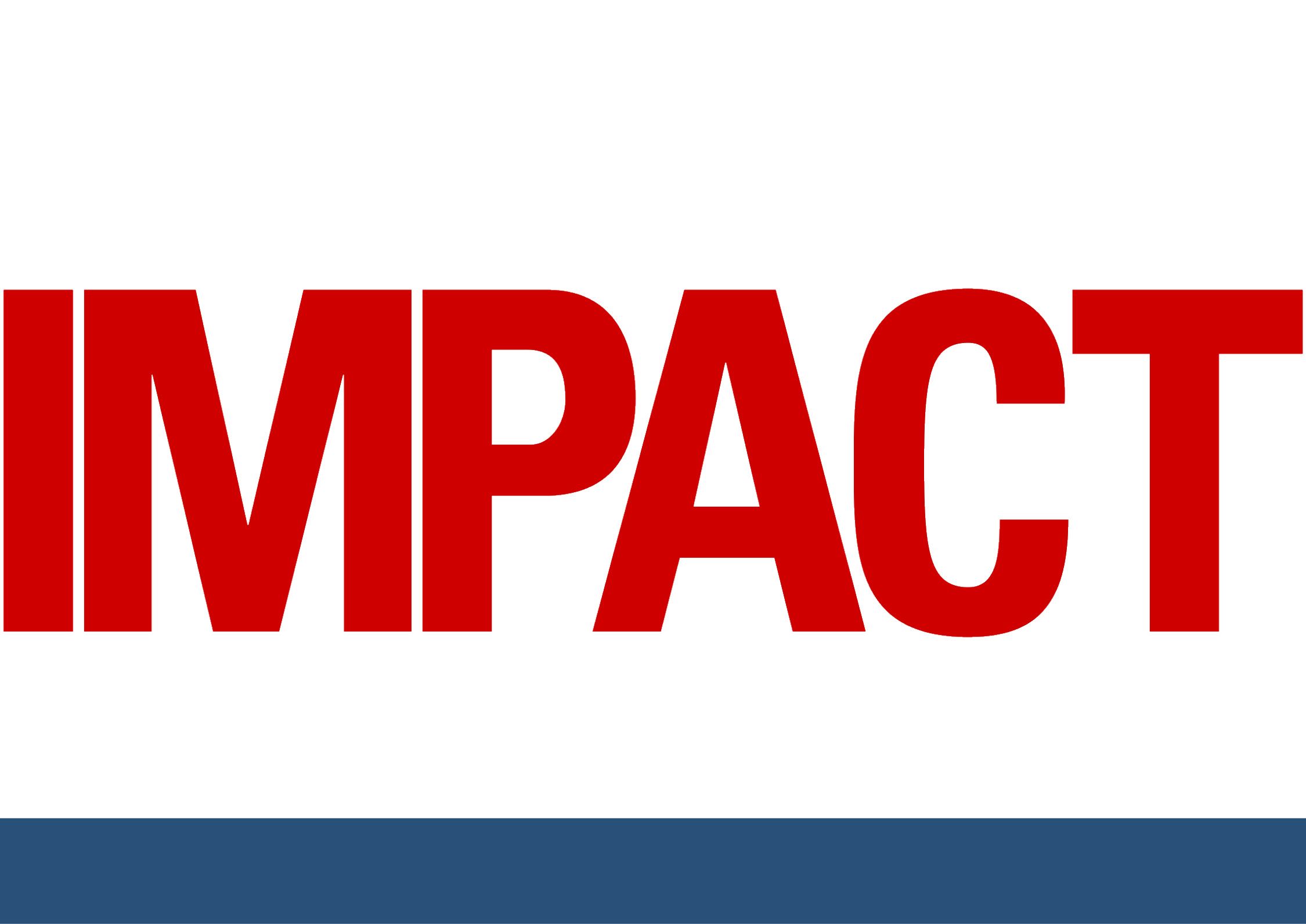
MESSAGE FROM PROFESSOR BRENDAN CRABB AC
Director and CEO, Burnet Institute

Welcome to the Summer issue of IMPACT magazine.
What a challenging time it’s been for us all. Given the enormous impact of COVID-19 on our community and globally, we decided to focus our attention in this issue on some of the key aspects of the pandemic and how Burnet is helping guide some of the decision-making around the response. Since the onset of COVID-19, the Institute has initiated more than 50 new projects across the spectrum of research and public health, including work on vaccines, antivirals, rapid diagnostics, public health, modelling and international development. We’ve also been very active in providing strategic and modelling advice to both State and Federal governments and in the provision of up-to-date information to help in their decision-making, and to a range of other stakeholders through our Know-C19 Knowledge Hub. A number of Burnet staff have been very active with media engagements, which has highlighted the critical importance of medical research and public health in the response to COVID-19, and other infectious diseases, and in preventing spread, managing the response and in the prevention of future pandemics.
If you haven’t already taken the opportunity, I highly recommend listening to the How Science Matters podcasts created by our talented communications team and produced by Written & Recorded. The 8-part podcast series gives a terrific insight into our work, a great overview of COVID-19, and how science is playing a leading role in shaping our response.
To listen, go to Burnet’s website burnet.edu.au or wherever you get your podcasts.
We’ve been able to refocus much of our work onto COVID-19 with the support of a number of government grants and through philanthropic support, as well as the application of resources obtained through the sale of some of our assets last year, which has given us the capacity to plough funds back into our research. This will be helped even further with the recent sale of Burnet’s majority-owned laboratory facility, 360biolabs. This has been a tremendous science success story where we identified a need for laboratory support for clinical trials, especially in the area of immunology and virology. Formed in 2015, 360biolabs has developed into a world-class facility and become even more in demand as a result of the COVID-19 pandemic. The sale has placed Burnet in a very strong financial position, secured our long-term future, and will enable us to significantly invest in our research, public health and international development programs for the benefit of all.
As we approach the end of the year, please keep an eye out for our Appeal which is focused on safe birthing in the time of COVID-19, an important aspect and a critical period for many, particularly among vulnerable communities. Your support is critical in enabling us to continue our work and very much appreciated.
I do hope that you and your family keep safe and well and have a happy holiday season. I look forward to keeping you up-to-date with Burnet’s activities over the coming months.
Best wishes,
Professor Brendan Crabb AC
Director and CEO, Burnet Institute
Please support our life-saving research | Donate today

Make an Impact | Donate Today
Choose to make a gift to Burnet Institute. Every donation makes a difference to the lives of vulnerable communities where we work.
Contact Us
If you would like to discuss this edition with our team please contact Tracy Parish.
E: communications@burnet.edu.au
T: +61 3 9282 2111
Where possible people who appear in images included in this publication were photographed with their permission. There is no implication that these people have any infectious diseases.
Stay across the latest from Burnet Institute
Subscribe to IMPACT magazine today
Discover the IMPACT of Burnet’s medical research breakthroughs and public health projects in the Institute’s bi-annual magazine.
